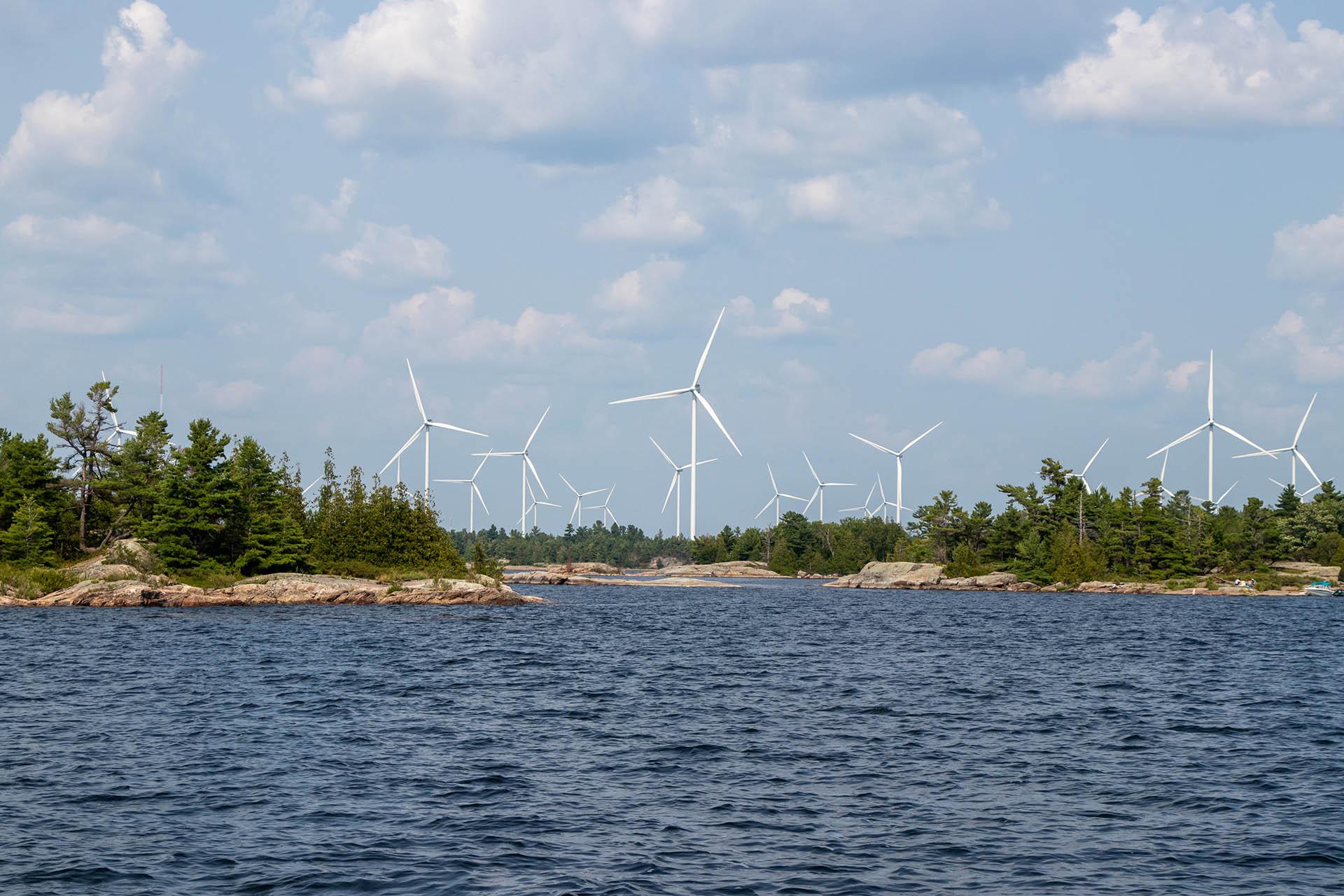
Canada’s largest First Nation wind partnership
Informing the development of a 300-megawatt wind farm, the largest First Nation wind partnership project in Canada
A 300-megawatt wind farm with respect for nature and communities at its heart
The Henvey Inlet wind project is an 87-turbine wind farm and transmission line in the Robinson Huron Treaty territory (Lake Huron region) of Canada that will generate clean energy for 100,000 homes across Ontario each year. We completed environmental assessments regarding the potential social and environmental impacts and mitigation measures for the first renewable energy project developed under the First Nations Lands Management Act. Once opted into, First Nations may develop their own laws about land use and the environment.
Local insights to protect local environments
Around 15 percent of our project workforce were from Anishinabek Nation communities and had expertise on the local land and species at risk. Our role included obtaining environmental permits and required approvals from bodies including Environment Canada, the Ministry of Natural Resources and Forestry and the Environmental Commissioner.
We also planned, coordinated and implemented an environmental management system (EMS) and performed environmental construction monitoring to help minimize harm to species at risk. Informed by EMS data, we were able to identify trends, plan corrective actions and forecast future challenges, reducing costs and accelerating compliance efforts. An automated compliance calendar also allowed us to minimize interruptions.
Empowering dialogue for sustainable outcomes
A key component of the project is a 104-kilometer transmission line delivering energy to the Ontario electricity grid in Parry Sound. This traverses provincial lands and traditional territories belonging to the Shawanaga, Magnetwawan and Henvey Inlet First Nations. Our First Nation Community Liaison provided support to the First Nations and AECOM staff, easing cultural challenges. At project completion, many Anishinabek and Indigenous staff either returned to school or moved on to similar projects.